
Community-Based Innovation and Career Development Scholarships was launched by the Equitable Education Fund (EEF) Thaialnd to provide tailored education models for economically disadvantaged youth and informal workers. It addresses their specific needs and enhances their capabilities through community-based strategies and the utilization of social and cultural resources. By involving all stakeholders, the project seeks to establish inclusive learning spaces that empower individuals throughout their lives.
The project focuses on two main groups: economically disadvantaged youth aged 15 and above with limited education or low income, and informal workers facing challenges in various areas such as economics, society, education, health, and environment. Collaboration with public and private sector organizations, community-based groups, foundations, non-profits, and social enterprises experienced in skill development and community innovation is sought to implement the project. Over 110+ organizations working with the target beneficiaries will be engaged.
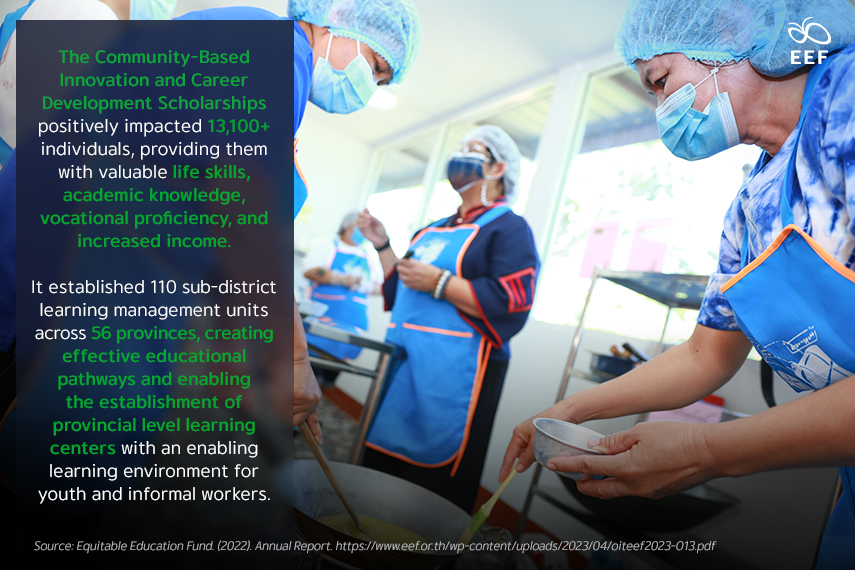
In 2022, the Community-Based Innovation and Career Development Scholarships positively impacted 13,100+ individuals, providing them with valuable life skills, academic knowledge, vocational proficiency, and increased income. It established 110 sub-district learning management units across 56 provinces, creating effective educational pathways and enabling the establishment of provincial-level learning centers with an enabling learning environment for youth and informal workers.
The project also developed a learning management model that focused on strengthening learning approaches, empowerment, and self-perception as capable individuals among youth and informal workers. The framework aims to provide flexible and diverse learning opportunities that cater to the specific needs of the beneficiaries, including community-based ideas for career development and entrepreneurial abilities.
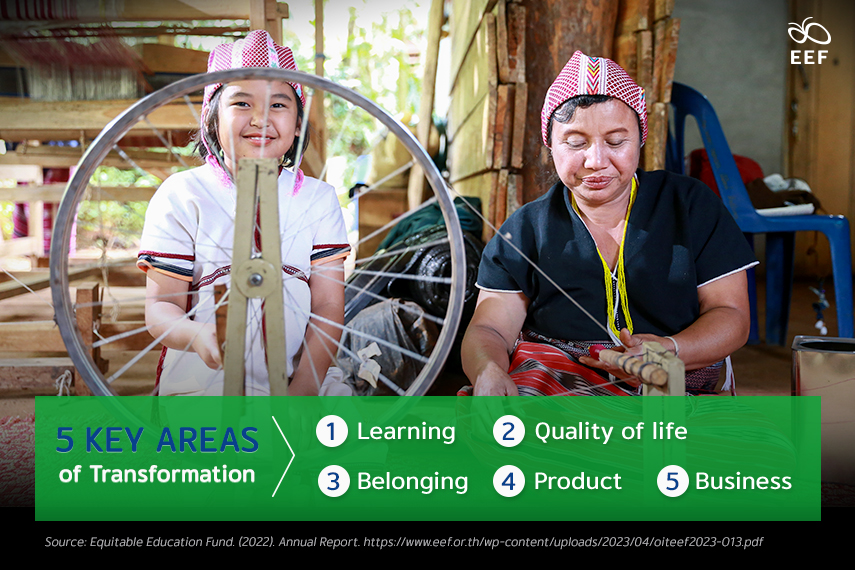
Over the course of its implementation, the project focused on 5 key areas of transformation: learning, quality of life, belonging, product, and business. It aims to develop community-based vocational skills, household economics, life planning, and promote lifelong learning. Quality of life improvements include developing marketable skills to increase income and well-being. Belonging is fostered through the creation of networks and social communities that enhance entrepreneurship. The project also involves the creation of community-based products for sale and the enhancement of entrepreneurship through online and offline ventures.
The project’s implementation occurs at 2 levels:
- community-based learning management units for youth and informal workers developed taking into account the local context, challenges, and the beneficiaries’ needs.
- Learning-conducive environment for youth and informal workers established by supporting community preparedness, developing information systems and databases, creating pathways for career development, and designing programs for beneficiaries.
Community-Based Innovation and Career Development Scholarships aims to address economic disparities and welfare issues between informal and formal labor sectors, which significantly impact the overall economy. By enhancing learning and skill development opportunities for youth and informal workers, the project seeks to motivate their entry into the education system, skill development, and better employment prospects.
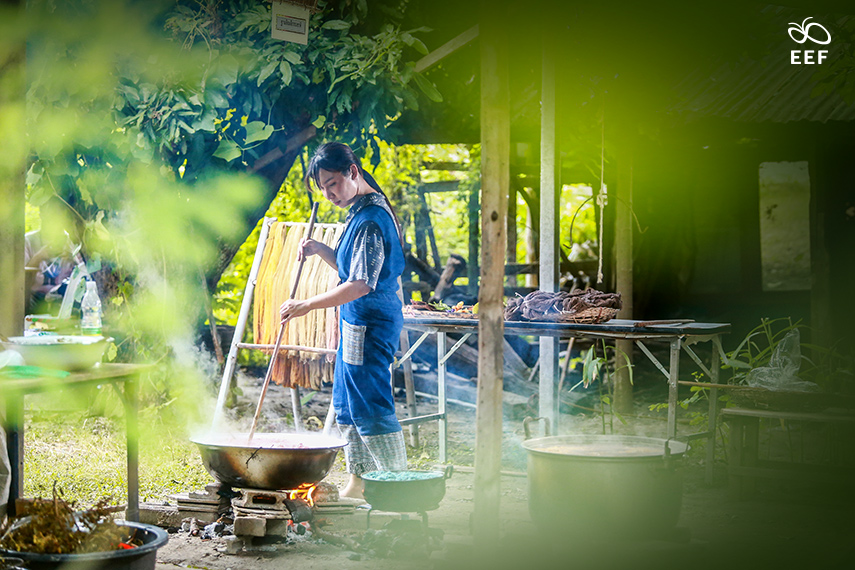
The project actively involves the community to establish new learning spaces for alternative education and career development. It implements a localized education and vocational development system that benefits the target groups through a territorial approach. Collaboration with relevant agencies and the establishment of a learning system that connects education within and outside the formal system are important for the project’s success.
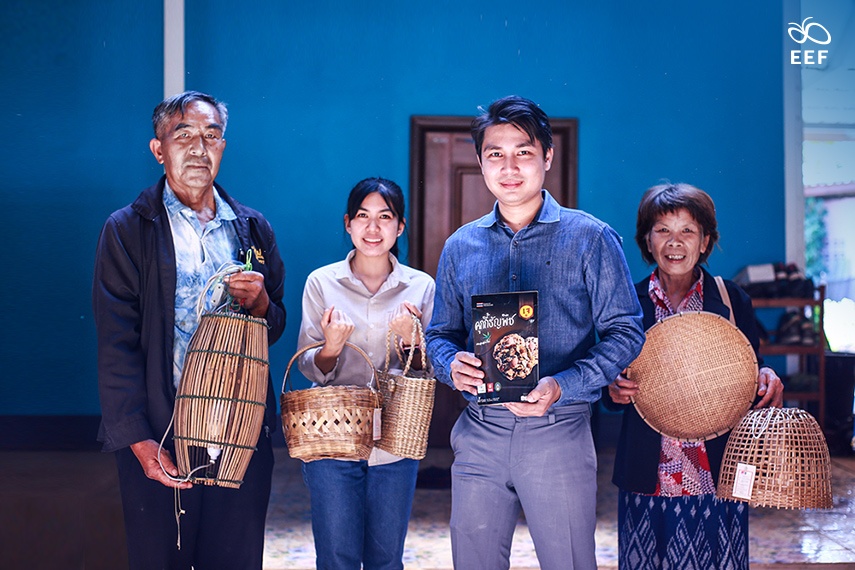
Additionally, the project collaborates with the Department of Juvenile Observation and Protection to provide equitable educational opportunities for children and youth involved in the criminal justice system. The aim is to create a learning method that is flexible and can cater to the individual’s potential, while maintaining the educational standards set by the Office of the Basic Education Commission (OBEC).
The project focuses on two dimensions: enhancing vocational skills of children and youth through the Young Boost Up curriculum, which combines vocational training with assessment tools to evaluate competencies and facilitate entry into vocational programs, and strengthening physical, mental, intellectual, and social aspects for children and youth, which emphasizes self-learning connected to individual interests, family relationships, and community development to provide support and protection for children.
The primary objective of the project is to bring about behavioral changes in children and youth, providing them with education and vocational enhancement opportunities. This helps uplift their socio-economic status and break the cycle of repeated offenses and relapses into the criminal justice system. In 2022, a total of 960+ children and youth involved in transitional justice received education through learning centers under the care of observation and protection centers across various regions.
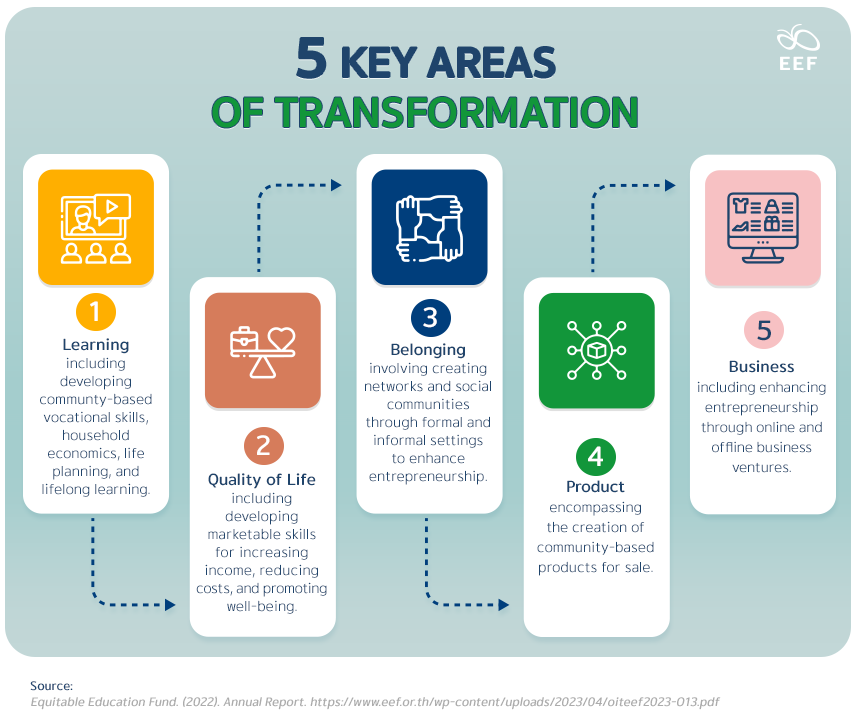
Five Key Areas of Transformation
1) Learning, including developing community-based vocational skills, household economics, life planning, and lifelong learning
2) Quality of Life, including developing marketable skills for increasing income, reducing costs, and promoting well-being
3) Belonging, involving creating networks and social communities through formal and informal settings to enhance entrepreneurship;
4) Product, encompassing the creation of community-based products for sale
5) Business, including enhancing entrepreneurship through online and offline business ventures
Source: Equitable Education Fund. (2022). Annual Report.
https://www.eef.or.th/wp-content/uploads/2023/04/oiteef2023-O13.pdf

